Griffin Dunne has been involved in acting, producing and directing since his early days in the industry. Despite having known the warp and weft of a business that brought together the most glittering personalities in his parents’ house and having grown up in a Hollywood that was transitioning towards modernity —where you are not impressed when Sean Connery pulls you out of the pool where you start to drool, Elizabeth Montgomery (Bewitched) is your babysitter, Tennessee Williams grabs your crotch while you are waiting on the table or Natalie Wood is your mother’s best friend—, he followed his vocation with impeccable professionalism. Aware that we were raised in the land of make-believe, so make-believe dinners for a make-believe marriage made all the sense in the world to us, the precocious maturity of those who grow up in the dream factory was part of his learning and probably contributed to his vision of an industry he started in with no false expectations.
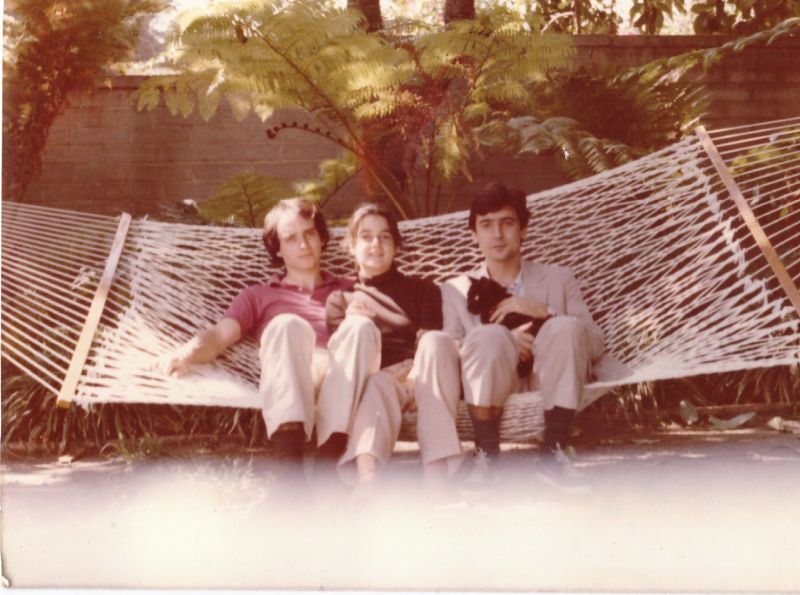
“The Dunne Fingerpuppet Players on Crescent Drive with Brindsley the rat catcher”. Courtesy of the author.
One of those dinners, a party conceived by the patriarch Dominick —producer among others of The Boys in the Band and The Panic in Needle Park (1971), whose screenplay was signed by his brother John Gregory and his sister-in-law Joan Didion— was a lavish and carefully orchestrated black and white ball, which celebrated their tenth wedding anniversary, and which would be the swan song of their marriage. Truman Capote was invited to this party, who in turn would not count on his hosts for his own event that he would organize in 1966 at the Plaza Hotel and would be considered the party of the century. A stolen idea in every sense of the word. The curse after both parties would be the fall in disgrace of their hosts, Dunne’s father cancelled for offending the powerful agent Sue Mengers and the author of La Côte Basque, for writing it.
The Friday Afternoon Club: A Family Memoir (Penguin Press, 2024) is a story of childhood, youth and the beginning of maturity, where Dunne opens up, transmitting not only his story, but a contextualized narration, in which the weight of his background is linked to the plot that runs through the different episodes that marked his life. At the age of 69, when many of the characters who influenced his path have disappeared, including Carrie Fisher, but above all members of his family, Griffin Dunne looks back to enlarge with his humility the halo of good vibes that has always emanated from an actor with whom the public has laughed and suffered, and whose role in After Hours (Martin Scorsese, 1985) has reached cult status.
The actor himself explained this in the interview I had with him on the occasion of the premiere of his latest film Ex-Husbands: I saw that I was perfect for that kind of a character that I’ve been, you know, on one level or another, a Chekhovian character without ever knowing it, that being tragic and funny, ridiculous, but very, very human, feeling a great deal, and just being able to turn my emotions to have them go from one thing to another and, and react differently and in unlikely ways.
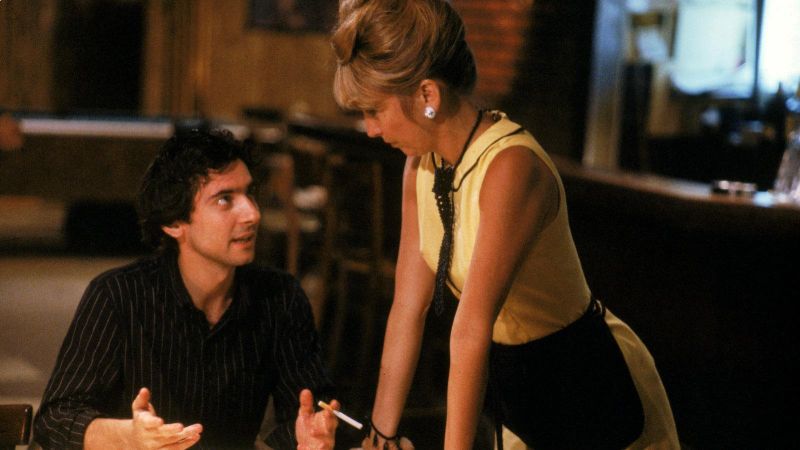
After Hours (Martin Scorsese, 1985).
The author’s family history permeates every episode, directly or indirectly, mostly through painful events, which are admirably described with simplicity and personality, as if Dunne doesn’t mind us judging him, as if he were stating, “This is my life and this is how my family was, and this is how we did things and handled our problems.” Death, crime, stigma about sexual identity, his non-judgmental exploration of it, illness, financial ups and downs, run through the pages of The Friday Afternoon Club, without us feeling the victimhood or the sacrifice, but the pain and the will to overcome it. On the other hand, it is the resilience, the sense of humor, starting with laughing at oneself and, above all, the deep and broad vision of life, which he learned from his parents, that endows the work with a truthfulness, resistant to criticism or prejudice. This does not prevent long-standing fraternal quarrels or more or less hidden secrets from having their place, as in the best families.
The title of the book is the name of a weekly meeting in the pool house convened by his sister Dominique, with his fellow acting classmates. In the back garden they drank and celebrated into the night, and among the attendees were George Clooney and Miguel Ferrer, who were just starting out in the profession, and Tim Hutton, who had just won an Oscar for Ordinary People (Robert Redford, 1980). Dominick and Ellen (Lenny) Beatriz Dunne’s only daughter was already making her mark on the cinema and television screens, where she had appeared in Poltergeist (Tobe Hooper, 1982) and the series Hart and Hart. The hostess of the Friday Afternoon Club was the victim of the greatest drama in the history of Griffin Dunne and his family: her strangulation in 1982, at the age of 22, at the hands of her boyfriend, John Sweeny.
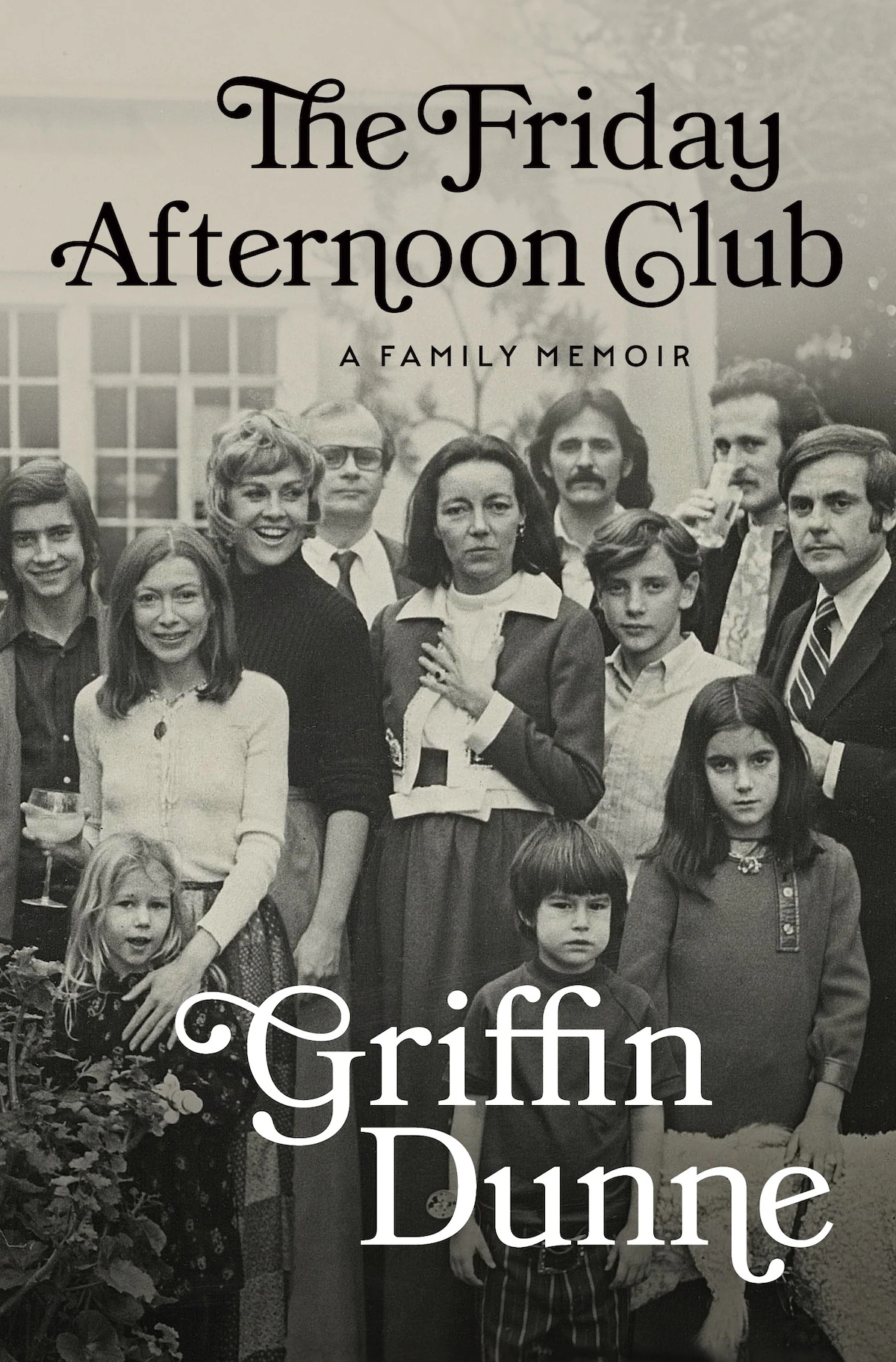
Through the story of a gifted narrator, appears the Hollywood of the seventies and eighties, the birth of new stars, the struggle to get a place in the industry, when the children of celebrities were not yet qualified as nepo babies, without sparing us reflections on the construction of an own identity in an environment of egolatry and also of duplicity: My fragile identity at that time was tied to a father who couldn’t throw to third and gave me two French poodles named after famous homosexuals. What I secretly longed for was to have a father like my hotheaded uncle. It took me many years to understand what it meant to be a man, and by then I realized I’d been raised by one all along.
Dunne relates, without anticipation or omniscience, the evolution of the paternal-filial relationship, which maturity opens up new areas of understanding and comprehension, facilitated by the awareness of his father, his deliberate sobriety and personal rebirth. The real loss and the emotional loss, represented by the long estrangement between his father and uncle, force the author to perform a balancing of loyalties, in which affection and empathy dodge reproaches and the need to take sides. When the trial against Sweeny began, John Gregory and Joan left for Europe with their daughter Quintana, to spare her a traumatic experience, should she be forced to testify.
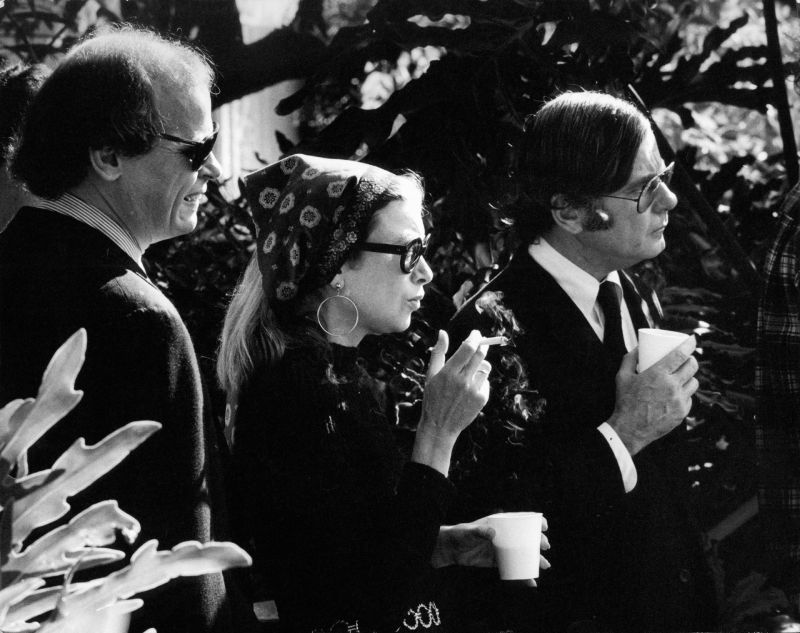
“John, Joan, and Dad on the set of Play It as It Lays. They had just come from the funeral of my parents’ close friend, the actress Diana Lynn, who had been cast in the film but died of a stroke during her costume fitting”. Courtesy of the author.
This act, coupled with the fact that this branch of the Dunne family continued to frequent the restaurant where their niece’s murderer worked as a sous chef —and which the rest of the family experienced as an unforgivable lack of support— further deepened the rift between the siblings. However, Griffin continued to relate to them when they returned from their exile/desertion until their passing, even directing a respectful and intimate, admirable and moving documentary, Joan Didion: The Center Will Not Hold (2017), which included the other Dunne’s own drama: the premature death in 2005 of their only daughter, at age 39, from the complications of pneumonia.
That would not be the only ordeal Griffin would face, for throughout the court proceedings —to which the actor attended while shooting a film, supported by loyal friends like Timothy Leary, who gave him LSD soaked in a sheet— Tina Brown, editor of Vanity Fair, suggests to his father that he write a diary of the trial, to turn it into a story for the magazine: [My father] seemed all too ready and willing to use Dominique’s trial as a springboard for his own midlife metamorphosis.
A decision to which the rest of the family objected, not wishing to expose the pain and their intimacy. Finally, once again, they preferred to appease and this meant the beginning of a new and successful career for the patriarch of the Dunne family, who in the nineties and the beginning of the new millennium would leave for posterity memorable and refined black chronicles, such as the trial of O.J. Simpson. As the author acknowledges: My aunt Joan had an aphorism that I was to learn the hard way: “A writer is always selling somebody out”.
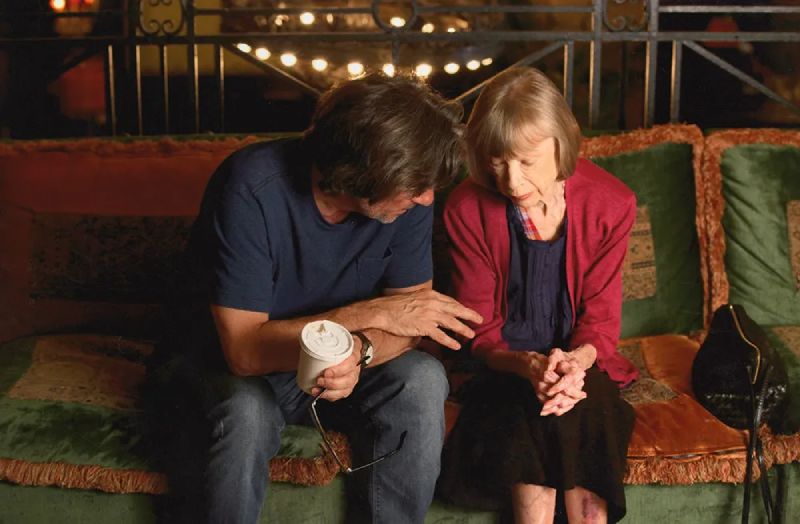
“My aunt and me on location while shooting Joan Didion: The Center Will Not Hold”. Courtesy of Ray Foley.
And this would not be the only crime Dunne would live so close to, as one of the people killed by the Manson family on Cielo Drive Was my father’s friend and I’d known him most of my life. Jay Sebring cut Dad’s hair, as he did the most famous men in Hollywood, and on Saturdays, one of our father-son errands was to stop by Jay’s salon at 9000 Sunset.
In the pages of The Friday Afternoon Club there is also (and much) space for the joys of work, deep friendships and reflections on love and sex —such as this lapidary definition of homosexual relationships in boarding school: The fagging system served as the training wheels for future despots who would one day rule their corporations or seats in government with impunity. Among all of them, the relationship that has the greatest impact on us because of its dimension was the one Griffin Dunne had with Carrie Fisher, which the author narrates with respect, but without sparing some details that reveal the intimacy that united them. If the author had limited himself to dropping names and anecdotes, we would be faced with a seductive reading, like so many others that leave no trace, but its particularity is its sharp and sincere look, where the ability to laugh at himself and reveal embarrassing situations tells us as much about the personality of the versatile filmmaker as the fact that they happened and the way they were experienced.
“Carrie at a party my mom gave for me on Crescent Drive when After Hours was released”. Courtesy of Connie Freiberg.
The Dunne family was unfortunate in its own way: degenerative disease, mental disorders, death, the sexual hypocrisy —forced upon them by the times— haunted them, but as much as creativity, the strength to come together in the worst of circumstances and, above all, to forgive each other —the reconciliation of Dominick and John Gregory is pure English humor. The story is replete with implicit nuance, especially in the portrait of his father, singular, detailed, not shying away from the complexity and perspective the author acquires over time, which is the only thing that gives meaning to life. Living to understand that the world is neither fair nor unfair, that murderers sometimes get away with murder and the innocent don’t stand a chance.
At the bottom of the hilarious or tragic stories, vicissitudes and stumbles, there is no trace of bitterness or rancor, but a natural stoicism, an ethic that celebrates life with honesty and forgiveness, starting with the author himself. The family memoirs narrated by Dunne end at the age of 36, with the birth of his only daughter, Hannah, the fruit of his six-year marriage to actress Carey Lowell. A coherent and vital ending in keeping with one of the author’s most memorable quotes: Years later, I came across a quote of Martha Graham to Agnes de Mille that is still tacked on the corkboard in my office. I read it for inspiration and self-assurance, and as penance should I miss another opportunity to learn from someone: “There is a vitality, a life force, an energy, a quickening that is translated through you into action, and because there is only one of you in all of time, this expression is unique. And if you block it, it will never exist through any other medium and it will be lost”.
Header photo: I brought Carrie and Mark Hamill to a party at Earl and Camilla MGrath’s the week ‘Star Wars’ opened. Courtesy of the McGrath estate.

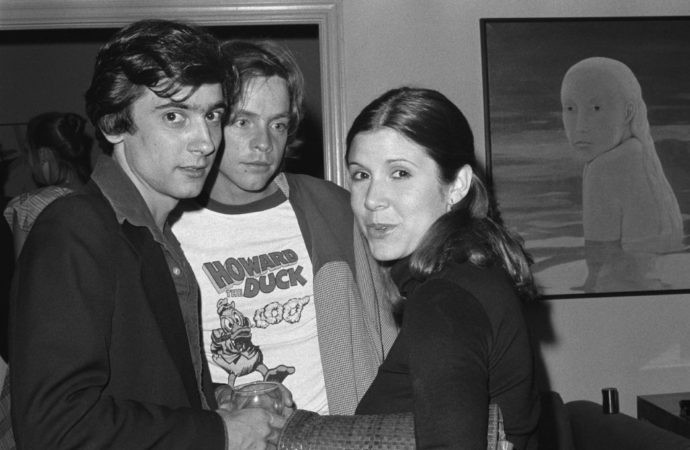

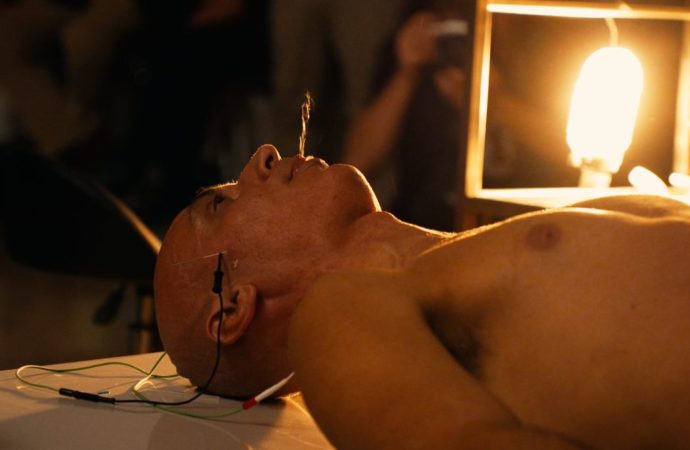
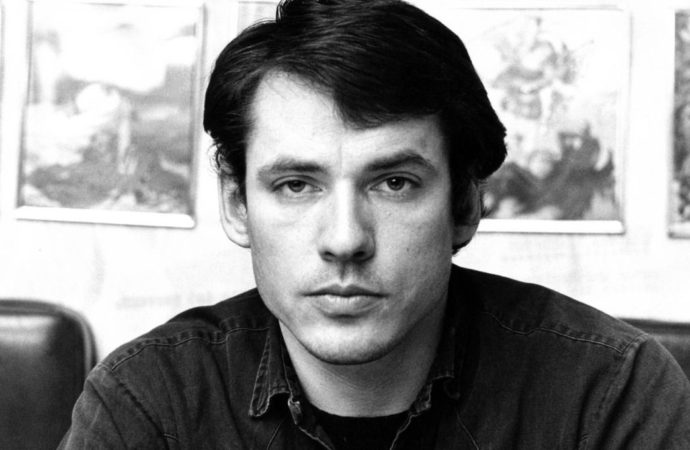




No one has posted any comments yet. Be the first person!